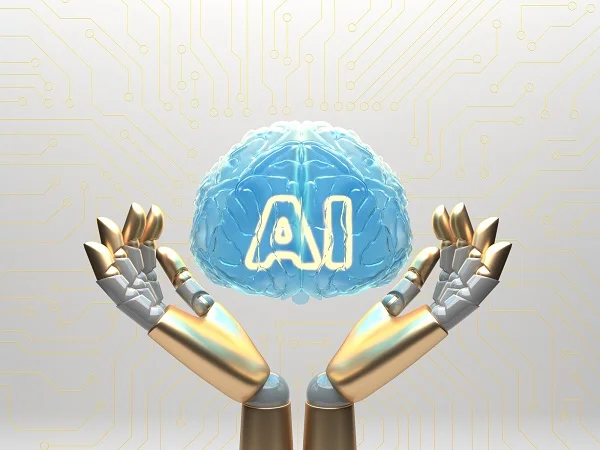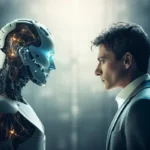Introduction
Imagine waking up in a world where your personal AI assistant schedules your day, self-driving cars take you to work, and AI-powered doctors diagnose illnesses with pinpoint accuracy. This is not the future it is happening now. How AI is changing the world is a question that touches every aspect of modern life, from healthcare and education to business and entertainment. In this article, we will explore AI’s profound influence on society and what the future holds.
AI in Healthcare
Revolutionizing Medical Diagnosis
Artificial intelligence has transformed healthcare by improving the accuracy and speed of disease diagnosis. AI-powered tools analyze medical images, detect anomalies, and assist doctors in diagnosing diseases like cancer, heart conditions, and neurological disorders. Studies show that AI can detect breast cancer with 94.5% accuracy, outperforming human radiologists in some cases. Read more about AI’s impact on healthcare.
Personalized Treatment Plans
AI-driven algorithms analyze vast amounts of patient data to create personalized treatment plans. This means better medication recommendations, more effective therapies, and fewer medical errors. IBM Watson, for instance, helps doctors make data-driven decisions by processing millions of medical documents in seconds.
AI in Business and Economy
Automation and Workforce Transformation
AI-driven automation is reshaping industries by streamlining operations and reducing human effort. Robots handle repetitive tasks in manufacturing, AI chatbots assist customers, and machine learning optimizes supply chains. While automation increases efficiency, it also raises concerns about job displacement and the need for new skills in the workforce.
Smart Decision-Making
Businesses leverage AI-powered analytics to make smarter decisions. AI tools analyze customer behavior, predict market trends, and optimize advertising strategies. For example, Amazon’s recommendation engine uses AI to personalize shopping experiences, increasing customer engagement and sales. Explore more on AI’s economic impact.
AI in Education
Enhancing Learning Experiences
AI-powered learning platforms provide personalized education tailored to individual student needs. Adaptive learning systems, such as Coursera and Duolingo, adjust content based on student performance, making learning more effective and engaging.
AI Tutors and Virtual Assistants
AI-driven tutors help students with real-time feedback and instant answers to their questions. Virtual assistants like ChatGPT and Google Assistant aid students in research and assignment completion, improving accessibility to knowledge.
AI in Transportation
Self-Driving Vehicles
Autonomous vehicles are a prime example of how AI is changing the world in transportation. Companies like Tesla and Waymo are developing self-driving cars that reduce accidents and improve traffic flow. AI-powered traffic management systems optimize routes, decreasing congestion and fuel consumption.
AI in Aviation and Logistics
AI enhances flight safety, air traffic control, and cargo management. Airlines use AI for predictive maintenance, ensuring aircraft reliability. In logistics, AI streamlines supply chain operations, reducing delivery times and costs.
AI in Entertainment and Media
Content Creation and Personalization
Streaming services like Netflix and Spotify use AI to analyze user preferences and recommend content. AI-driven tools also assist in music and video production, enhancing creativity. Discover how AI shapes entertainment.
Deepfake Technology and Ethical Concerns
While AI has made entertainment more immersive, it has also raised ethical concerns. Deepfake technology can create realistic but misleading videos, posing risks to misinformation and digital privacy.
Ethical and Social Implications of AI
Privacy and Data Security
As AI systems rely on vast amounts of data, concerns over privacy and security are growing. Companies must implement strict regulations to protect user data from misuse and cyber threats.
Bias and Fairness
AI algorithms can reflect biases present in the data they are trained on. This can lead to discriminatory outcomes in hiring, law enforcement, and lending decisions. Ethical AI development is crucial to ensure fairness and inclusivity.
Future of AI: What Lies Ahead?
The future of AI holds limitless possibilities. As AI becomes more advanced, it will continue to shape industries, enhance human capabilities, and redefine societal norms. The key lies in balancing innovation with ethical responsibility.
Conclusion
From healthcare and business to transportation and entertainment, how AI is changing the world is evident in every sector. While AI offers numerous benefits, addressing its ethical challenges is crucial for a balanced future. As AI continues to evolve, how will it shape the next generation?





